- BRI Women ⬦ Jewish Holidays ⬦ Read ⬦ Uman
“What Are You Doing for Rosh Hashanah?”
Here’s one of the hot topics that floats around in Breslov women’s circles this time of year: “What are you doing for Rosh Hashanah?” At least, I hear it a lot.
Forget about what I’m doing (which is my own story); let’s just consider some possibilities…
a) You are married, with or without children, with or without family nearby, and your husband does not travel to Uman for whatever reason—perhaps just not this year, perhaps never. So your Rosh Hashanah is probably going to look a lot like that of your friends and neighbors—you spend whatever time you can in prayer either in synagogue or at home; feed the children (if there are children) pretty much non-stop; hear the shofar; eat festive meals; either do or do not receive guests. As a woman who is connected with Rebbe Nachman in some way or another, what makes your Rosh Hashanah uniquely Breslov?
Rebbe Nachman said that his entire inyan—his whole focus, his very essence even—is Rosh Hashanah. “Gohr mein zach is Rosh Hashanah.” He was clear that it is extremely important to be with him for Rosh Hashanah. But what if, for whatever reason, we are neither there ourselves nor sending ambassadors?
Some suggestions: prepare a pidyon (soul-redemption charity money) to be given before Rosh Hashanah to a tzaddik on your behalf; participate in the midday worldwide recitation of Tikkun Haklali the day before Rosh Hashanah; learn something of Rebbe Nachman and Reb Nosson’s teachings about Rosh Hashanah and the blowing of shofar for inspiration (make use of Breslov Research Institute’s great resources in English if you cannot follow the original writings)…
Try to be with the kibbutz in Uman in your mind and heart (and this also applies to us who are sending ambassadors). Rebbe Nachman taught (as did the Baal Shem Tov, the Ramban and others) that you are where your thoughts are. If your thoughts and heart are with thekibbutz, then you’re also there.
“If only I had the wings of a dove, I would fly away to the holy tziun in Uman!”
That said, it’s still important to be happy where you are, to focus on the good points of your family and community and not allow yearning to fall into self-pity and melancholy, which is the worst sin. “…Delight in G-d is your strength!”
For all Jews everywhere, the main focus on Rosh Hashanah is accepting and proclaiming Hashem’s Kingship. Try to keep your mind on this, and be careful with your speech on the day of judgment. If you will be spending time with non-Breslovers, it is a great avodah not to enter into disagreements about 1) why your husband has left; 2) why it is important to go to the Rebbe; 3) anything at all.
b) You are at home or staying with family or friends, and you’ve sent an ambassador (or more than one) to Uman. Be happy! What a privilege! Instead of focusing on the fact that you’ve been left behind (actually, you haven’t—one’s wife is like himself, and a person’s emissary is an extension of himself), bear in mind that you are bound to the kibbutz through all of the efforts that you have expended to make it possible for your emissaries to get there. If you are spending the festival with non-Breslovers, do not allow this to bring you down. You will be praying or at least hearing shofar with kosher Jews who are doing their best, and Hashem’s presence is drawn to wherever He is called upon in truth, and certainly where there is a kosher minyan. Of course, everything that applies to a) above in terms of being connected with the kibbutz also applies here.
c) You will be with the kibbutz in either Jerusalem or Meron… How fortunate you are! Every bit of self-sacrifice to be with the kibbutzeither on your own or with family is certainly worthwhile. Be uplifted by the Breslover atmosphere and be grateful that you have the opportunity to applaud when the congregation reaches “HaMelech!”—when the first great declaration of Hashem’s Kingship is made. (You can still buy seats in the women’s section inJerusalem, and there is always room for more in Meron.)
d) You have already left or will be leaving shortly for Uman yourself. More and more women are going, and although I have my own feelings about it which I won’t go into right now, it seems to be a trend that is only growing. What can I say? That I’m a bit envious and also that I’m not straining against the current constraints that keep me from joining you. But that’s me… As for you, ashrayich. Fortunate are you. May all your tefillos be answered for the good, and may you merit to receive a dose of the da’as, the mindset and holy awareness of Rabbeinu. And may you successfully navigate through Uman in a modest and unassuming manner.
For me, the main thing on Rosh Hashanah is to keep my head, my rosh, in the right place. I try to think only good thoughts; spend as much time in prayer as I can both in and out of shul; pray with a minyan of G-dfearing Jews; watch my speech; realize to whatever extent it is possible for a simple person like myself the infinite greatness of the Creator—and my infinitesimal smallness and dependence on Him. With all this, I try hard not to neglect my younger children or get frustrated by my inability to spend all day in shul; to serve delicious meals to the family and whatever guests Hashem sends; and to develop faith in Hashem’s mercy—so that I can celebrate the festival of the new year.
Rabbeinu said that for his people, he manages to accomplish in the heavenly judgments on the eve of Rosh Hashanah what othertzaddikim only manage to accomplish on Rosh Hashanah itself. Part of my relationship with my Rebbe is confidence in the truth of his words. I must repent with all my heart and also trust in Hashem’s forgiveness and lovingkindness.
A gut gebetnsched yohr! Wishing everyone a good and blessed year!
- 8 comments


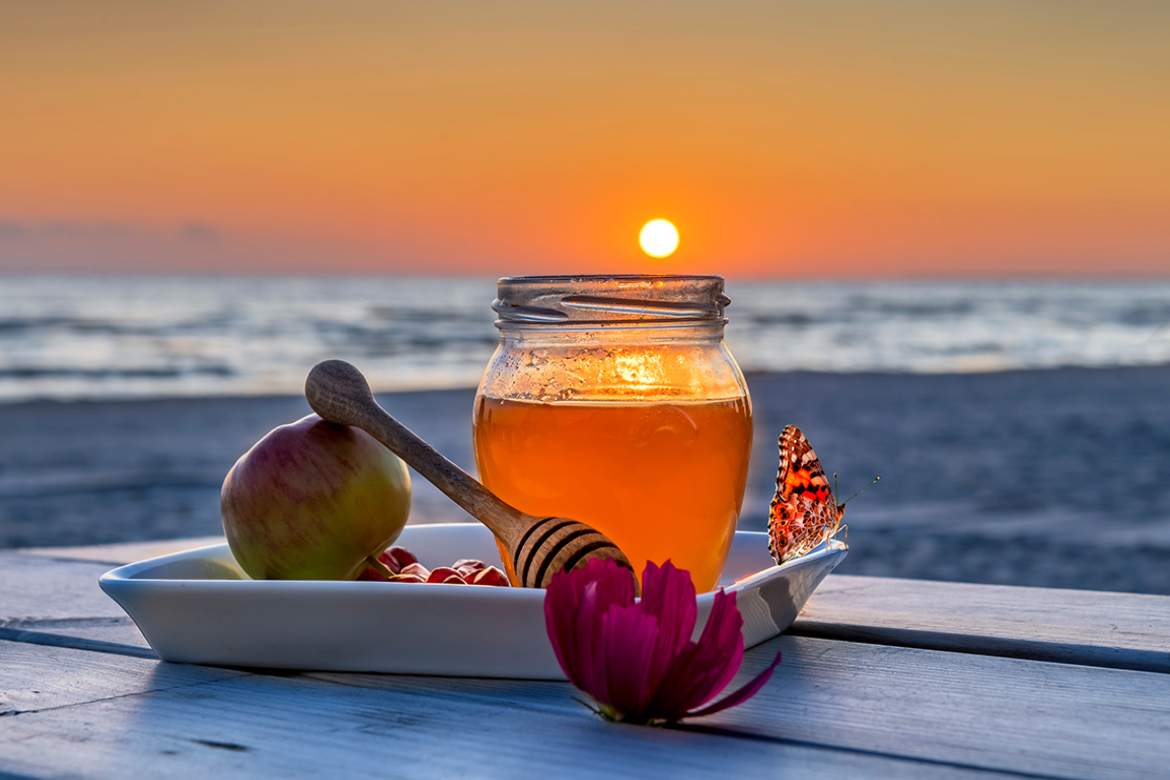
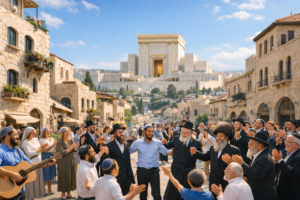
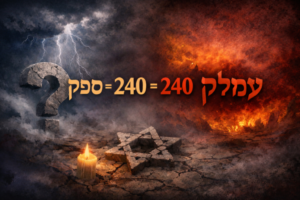
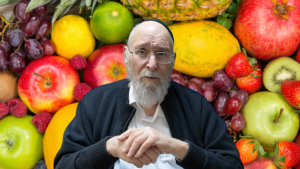





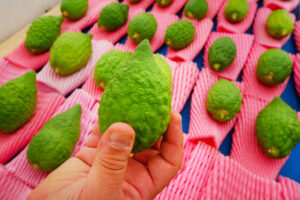







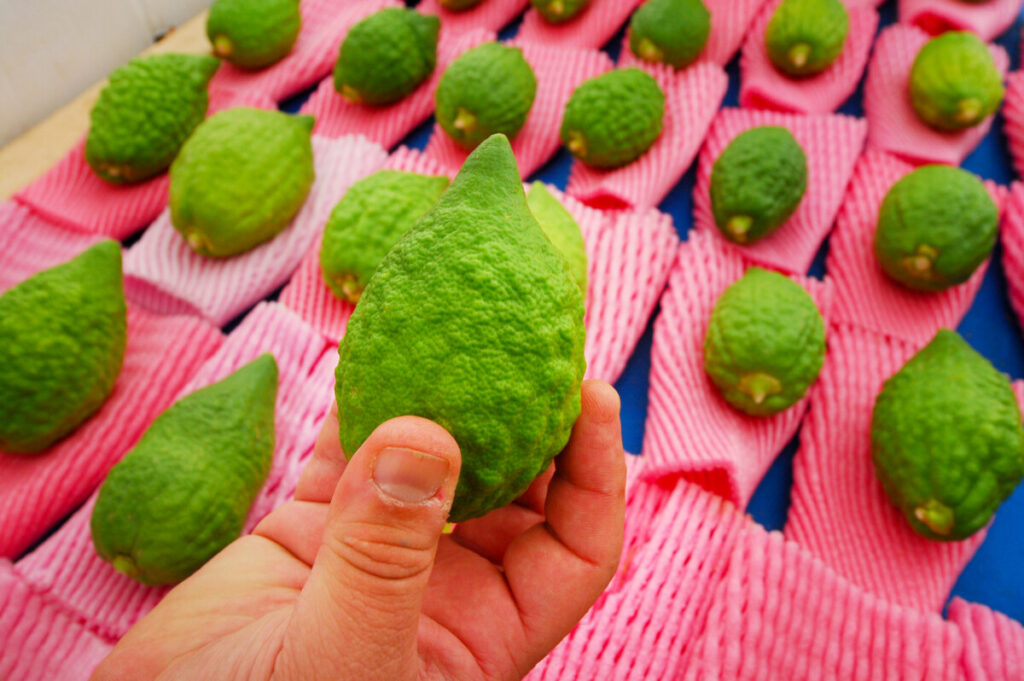



8 Responses
Rebetzen….can we have some practical ways to explain to the non-Breslover family members or close friends why our husbands are going to Uman? I guess the real questions is, how do you “justify” to non-breslover family members that your spending money on going to Uman when they clearly know that there isn’t that extra money in the bank (understatement)? Thanks for your wonderful words!!!
I really like the practicale idea of taking care of my rosh, something to stay focused on throughout the day no mater what I’m doing be it davaning or feeding my kids. I also think its so important for mothers to realize that the avoda of the day is so strong and real, no mater where you are. never stop davaning!
I’ve often wondered what it really means to connect to the tzaddik. I’ve been doing hitkashrut more often which helps and gained a lot through Yehudis’ shiurim and now this post. Neither I nor my husband will be going to Uman for Rosh HaShana. I love the idea of having my thoughts there and praying to connect to Rebbe Nachman consciousness. Thanks for the eitzot, Yehudis. As usual, you are a real inspiration.
Sarah, let me preface my response by saying that Rabbeinu was known to be almost always “rach ka’kaneh“–flexible and conciliatory–unless the matter was really important, in which case he would not budge. But this not budging does not mean that he would engage in arguments; he would just do what he had to do.
With this in mind, try to never argue, but just to try to get the point across as clearly as you can without arousing further opposition.
When people ask me this, I explain that it is the norm among all chassidim to travel to their rebbe for Rosh Hashanah, just as it is very common for “yeshivaleit”–men associated with a particular yeshiva–to pray with the yeshiva rather than their local shul. When it comes to the judgment of Rosh Hashanah, we are looking to pray with our teachers and mentors, in as uplifting an environment as possible. All of the Gerrer chassidim who can manage it join the rebbe in Yerushalayim–why is it different if you have to pay for a plane ticket instead of a bus? If you are spending the money on the flight instead of on renting an apartment that costs for four days what a Gerrer chassid would normally pay for a month’s rental in Chatzor?
Breslovers are not unique in this kind of journey, it’s just that the location is different. And if the argument is that such a journey is unnecessary altogether, try to explain that each person is entitled to his opinion, and if they would like to see if it’s something that is necessary for them they might want to join next year!
Without being overbearing, it’s usually an argument stopper to just say that it’s hard to compare theory with experience; your husband has experienced something that brings him back (together with tens of thousands of others), but the objections are based on theory.
Now down to the nitty gritty–if a couple is receiving financial assistance from family members, they can expect that dollars often come with strings hanging from the corners and this is where the need to justify comes in. Because, if the Breslover couple/family was managing it on their own, it would be a discussion about hashkafah rather than a conflict about control. This is where mesirus nefesh tends to enter the picture, and anyone can view it differently if they please. If you are asking for help to pay for Uman and your family doesn’t agree with it and they cannot be reconciled to it, then it should be a loan and not a gift.
Alternatively, by exhibiting mesirus nefesh, even family members who do not agree with the idea of Uman Rosh Hashanah can be reconciled because they see the extent to which it’s important to you. For example, if the family budget allows for you to buy yourself a new outfit for yom tov, or shoes, or whatever–then set aside the money and be happy with what you have already. Even if this will not be enough money to fund Uman, when “der vos hot der meiah” (the holder of the purse strings) sees the extent to which you are willing to curtail an immediate pleasure for a greater goal, they may be inspired by that (and not going out for coffee, etc. etc.–all sorts of minor acts of self-sacrifice) to want to help you do what you want even if it’s not their ideal use of the funds.
If you are financially independent but still strapped, then it’s fine to respectfully hear out the family members and then go on doing what you’re doing.
Hang in there!
Dear Miriam and Malka,
Thank you both so much for the chizuk–there’s nothing more important than helping someone else feel closer to Hashem. May we be blessed with a sweet and good new year, filled with revealed chessed.
PLEASE NOTE:
There was a problem with the subscribe by email button on the top of the screen. If you used it please do so again or you will not be able to received new blog posts automatically, thanks and sorry for the technical issues.
BS”D
Rebetsin & other ladies Shavuah tov;
Though I miss my husband if he’s not near me even a couple hours I send him every year to Uman to bring home the LIGHT & to pray for Am Yisrael there.
But THIS YEAR we have a problem. We had a super difficult year financially & have zero money for his going there. He learns in a Breslov Kollel in Yerushalayim & one of our sons in a Breslov Yehivah too. Both want to & need to go to Uman.
I AM PLEADING to my Breslov sisters to donate & or help us get donors to send my son & husband to Uman. They will both pray (& wow do they pray & we have seen yeshuoth for people they have prayed for before!) for the donor. My husband can & will also give natural/alternative real good professional health advice in exchange too.
berbakha
Odelia
OOps my email address didn;t show up. to get replies for the request
todah
Odelia
[email protected]